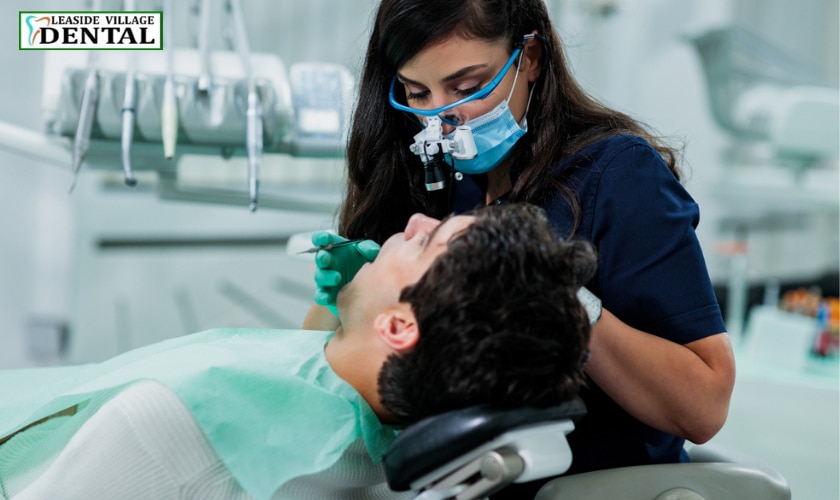Oral and maxillofacial surgery is a highly specialized field of dentistry that focuses on treating diseases, injuries, and defects of the face and jaw. This type of surgery can range from simple wisdom tooth extraction to more complex reconstructive procedures. It also includes dental implant placement and corrective jaw surgery. No matter what procedure is being performed, the goal of maxillofacial surgery is to improve the patient’s appearance and function. In this blog, we will discuss the basics of oral and maxillofacial surgery so you can have a better understanding of what it entails.
What is Oral and Maxillofacial Surgery?
Oral and maxillofacial surgery (OMS or OMFS) is a type of surgery that treats diseases, injuries, and defects of the face, mouth, and jaw. This specialty of dentistry requires four years of additional training after dental school. Oral and maxillofacial surgeons are qualified to diagnose and treat a wide range of facial problems, including:
• Wisdom teeth extraction
• Dental implant placement
• Orthognathic (jaw) surgery
• Facial trauma reconstruction
• Jaw misalignment correction
• Temporomandibular joint disorder treatment
Oral and maxillofacial surgeons also treat other conditions of the head and neck, such as sleep apnea, facial pain, and salivary gland problems.
Preparing for Oral and Maxillofacial Surgery
Before undergoing any type of oral surgery, it is important to have a comprehensive consultation with an oral and maxillofacial surgeon. During the consultation, your surgeon will review your medical history and make sure you are a good candidate for the procedure. In some cases, additional testing or imaging may be necessary to determine if you’re a good candidate for surgery.
It is important to inform your oral and maxillofacial surgeon of any medications that you are taking, as some medications can interfere with the healing process. Your surgeon may advise you to stop taking certain medications before surgery or adjust your dosage.
Your surgeon will also provide pre-operative instructions, such as how to prepare for the procedure and what to expect during recovery. It is important that these instructions are followed carefully in order to ensure a successful outcome.
Recovery from Oral and Maxillofacial Surgery
The recovery time for oral and maxillofacial surgery can vary depending on the type of procedure being performed. Your surgeon will provide specific instructions for post-operative care, which should be followed carefully to ensure a successful outcome. In most cases, the following is recommended:
• Get plenty of rest
• Avoid strenuous activities for a few days
• Apply cold compresses to the area to reduce swelling
• Take medications as prescribed by your doctor
• Eat soft foods and avoid hot drinks, hard or crunchy foods, and spicy foods
• Use mouthwash to keep the area clean
• Follow up with your doctor as instructed
Most patients are able to return to their normal activities within a few days or weeks after surgery. Your surgeon will be able to give you an estimate of how long it will take for you to recover.
Conclusion
Oral and maxillofacial surgery is a specialty of dentistry that focuses on treating diseases, injuries, and defects of the face and jaw. This type of surgery can range from simple wisdom teeth extractions to more complex reconstructive procedures. It is important to consult with an oral and maxillofacial surgeon before undergoing any type of oral surgery in order to ensure the best possible outcome.
FAQs
Q: What is oral and maxillofacial surgery?
A: Oral and maxillofacial surgery (OMS or OMFS) is a type of surgery that treats diseases, injuries, and defects of the face, mouth, and jaw. This specialty of dentistry requires four years of additional training after dental school.
Q: What conditions does oral and maxillofacial surgery treat?
A: Oral and maxillofacial surgeons are qualified to diagnose and treat a wide range of facial problems, including wisdom teeth extraction, dental implant placement, orthognathic (jaw) surgery, facial trauma reconstruction, jaw misalignment correction, and temporomandibular joint disorder treatment.
Q: How long does it take to recover from oral and maxillofacial surgery?
A: The recovery time for oral and maxillofacial surgery can vary depending on the type of procedure being performed. Most patients are able to return to their normal activities within a few days or weeks after surgery. Your surgeon will be able to give you an estimate of how long it will take for you to recover.

